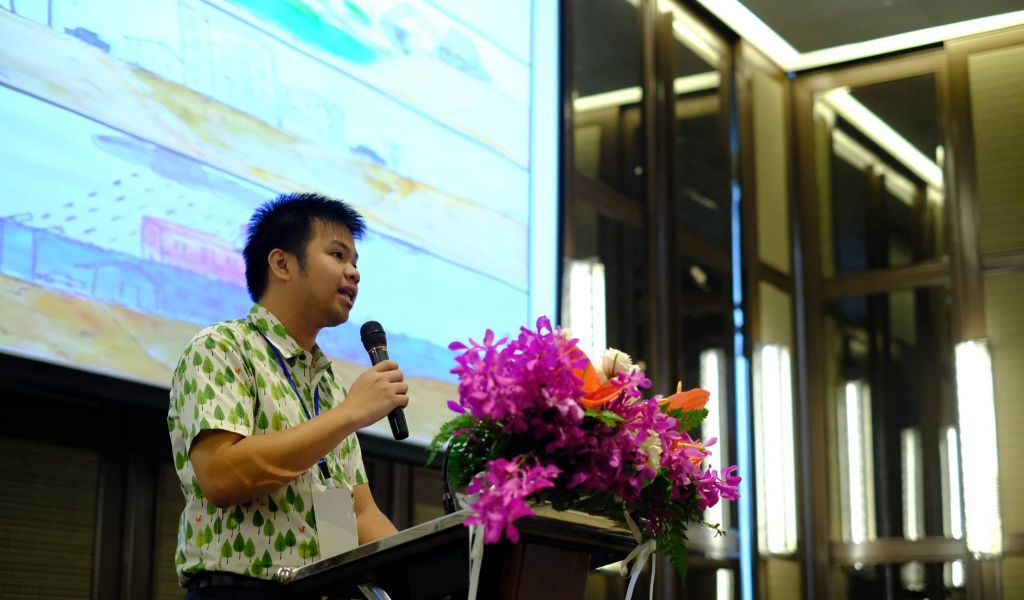Youth and Climate Change: A conversation with forestry student leaders

In December 2015, 184 countries signed the Paris Climate Change Accord, a multilateral agreement that aims to strengthen the global response to the threat of climate change. The Paris Agreement strives to keep the global temperature below 2 degrees Celsius above pre-industrial level; however, almost 3 years later, little progress has been made in reducing anthropogenic greenhouse gas emissions, the main contributor of climate change.
A report released by the Global Carbon Project in December 2018 made clear that progress has been negligible. According to the study, global emissions have reached an all-time high. This is worrisome. The effects of climate change on the planet’s ecological and social environments are irreversible. Climate scientists predict that rising temperatures will lead to severe weather events, the rising of sea levels, flooding, heat waves, droughts and a host of geopolitical crises.
It is therefore evident that the current top-down approach to climate change is not working. Despite the creation of international agreements, many experts argue that leaders are not doing enough to mitigate the risks associated with climate change. Perhaps then, the necessary solutions will come not from policymakers, but rather another group of actors: the youth.
Youth have been engaged in the climate change conversation for years, yet their voices are often not heard. To learn a bit more about the importance of youth engagement in the climate change discussion, I interviewed Jan Joseph (JJ) Dida and Desmond Teh from the International Forestry Students’ Association (IFSA). IFSA works to connect forestry students across the world through a wide spectrum of activities and provide a voice for youth in international forestry policy processes.
Q: Why should youth care about the environment?
Jan: “Youth are the inheritors of this planet. They will feel the effects of what the current generation is doing now. Thus, youth need to mitigate the effects of climate. They need to do something about it!”
Desmond: “Youth must be engaged to prepare for the future, especially those in South-East Asia and developing countries [who] will be affected by climate change more. I am from Penang, Malaysia. The climate there is humid and hot. But, in the last few years, there have been typhoons hitting Penang. I was so shocked. [Typhoons] shouldn’t be there. The typhoon caused a lot of damage, even affecting my family. We are all connected…. [T]he decisions we make about the environment should be made more carefully.
Q: Why should actors in the current climate change regime value the ideas of youth?
Jan: “Knowledge is always evolving! Youth will give new ideas and perspectives, technology, and innovation to the conversation.”
Desmond: “Students and youth are closer to the ground. They know what is going on at the local level. They are also the intermediaries between society and big organizations.”
Q: What piece of advice do you have for young people who want to get involved in addressing climate change?
Jan: “Appreciate the small victories! You may not see the effects of your work now; [but] you will see the value of your work in the future!”
Desmond: “You don’t have to be an environmentalist to help [fight] climate change. You can be from any sector, even business.... You can give back to the environment by being thankful and resourceful.”
***
To paraphrase Desmond and JJ, anyone can help fight against the adverse effects of climate change. For those looking to engage in the movement, here is a list of ways to get involved:
-
Educate yourself. Learn more about the causes, current environment-related discussions, and possible solutions to addressing climate change.
-
Join and volunteer local environmental organizations and clubs like Youth Climate Leaders, IFSA, Youth Climate Lab, and/or local school associations.
-
Engage in the climate change conversation online. Follow environmental NGOs, UNFCC and organizations online! Like, comment, share and repost content to raise awareness.
-
Attend youth-led environmental conferences! Network and converse with like-minded climate-change fighters.
-
Lobby decision makers to make more environmentally conscious policies.
-
Be resourceful. Reuse more, and consume less.
Editor’s note: These interviews have been slightly edited for clarity and length.

